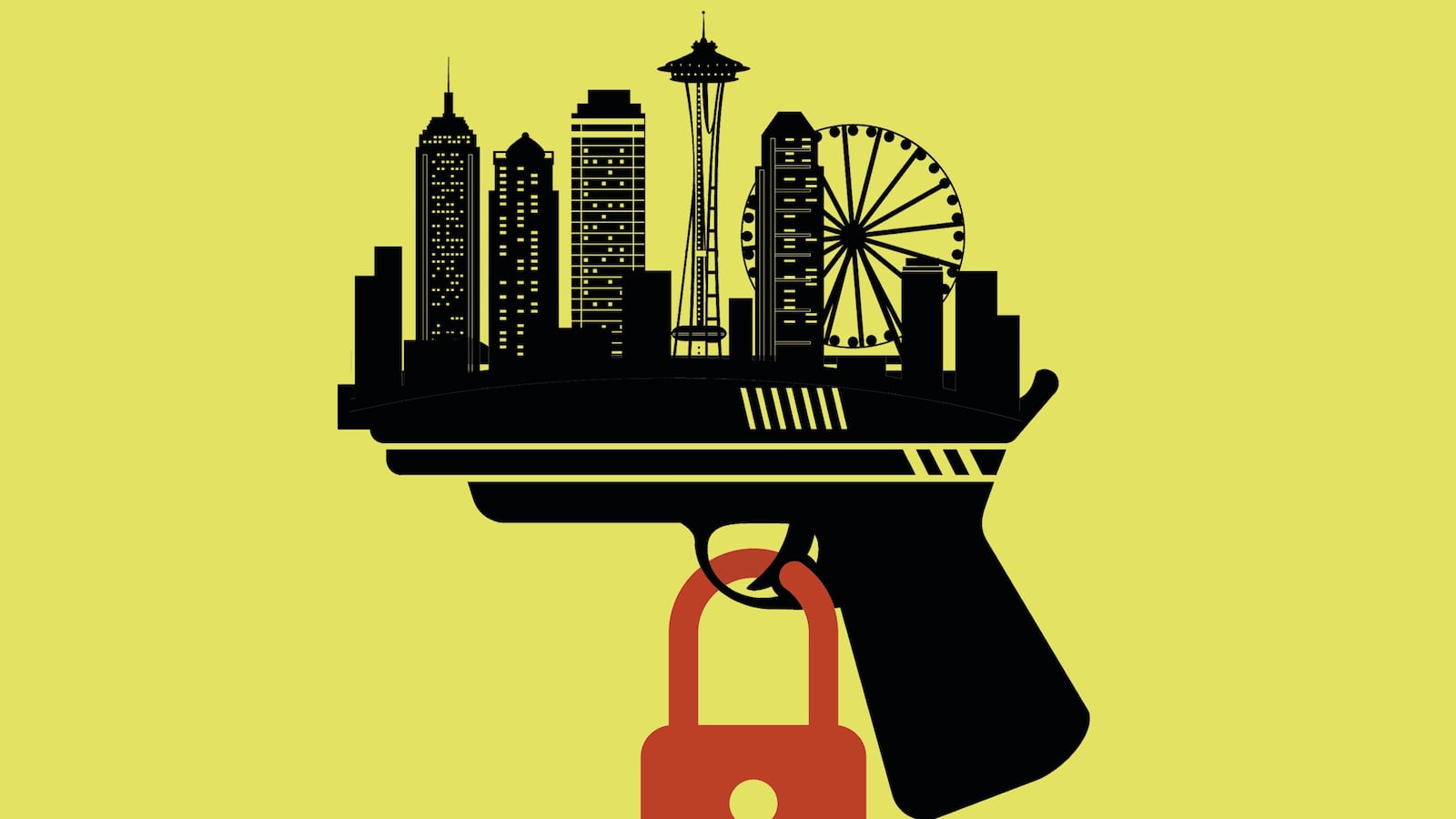SEATTLE — In an upbeat downtown office, Renee Hopkins, the executive director of the Alliance for Gun Responsibility, and her team of about 20 are doing for the people of Washington state what seems impossible in Washington, D.C., and many state capitals—passing real gun safety reforms.
When we think of the insane, bloody gun culture Republicans lawmakers have created, a few words come to mind: obstruction; obfuscation; obstreperousness. It is easy to believe the situation is helpless.
The National Rifle Association—led by a coterie of money-grubbing radicals addicted to arms dealers’ cash and indifferent to the actual views of the gun owners they’re supposed to represent—controls enough senators and congressmen to block even reforms supported by an overwhelming majority of voters.
As they say, necessity is the mother of invention, and so it’s been left to a hub of the tech world to find a way to disrupt those broken politics and revivify a 100-year-old progressive innovation: the ballot initiative.
This November, Washingtonians will get to vote on a ballot measure to place extreme-risk-protection orders into law. If that passes, it would be a second big win, after the people of Washington instituted universal background checks on the purchase of all firearms in 2014.
These new protection orders would be modeled on the state’s domestic violence and sexual-assault-protection orders, giving family members or law enforcement the right to petition a court to remove firearms from someone who is a danger to themselves or others.
It is the sort of simple common sense measure that could avert mass shootings around the country.
When I talk to Stephanie Ervin, the manager of the campaign, she’s optimistic, but cautious, that the group can build from its previous success: “In 2014, we were able to win 60 percent of the vote for universal background checks in a non-presidential year. Even as gun groups were placing a separate measure on the ballot with the sole purpose being to confuse voters.”
Polling—if you’re not into chemtrails and unskewing—seems to back up Ervin’s proposition. The Elway Poll, which released numbers this week on a variety of ballot initiatives set to go before voters in November, found that a solid 64 percent of Washington voters intend to support I-491 (the name of the ballot measure), with only 18 percent opposing it. This includes a majority of Republicans (55 percent) and men (57 percent), and huge margins among Democrats (75 percent) and women (70 percent).
The initiative also has a number of prominent third-party endorsees, including judges, prosecutors, police officers, faith leaders, health experts, the domestic violence prevention community, gun owners, and gun violence survivors. They have over 14,000 donors and have gathered over 330,000 signatures for their petitions. All rather impressive for a measure the NRA claims has no popular support.
Washington also legalized marijuana and gay marriage (before the court decision legalizing it nationally) through ballot initiatives. But with the substantial distortion of our democracy around guns, they are the issue with which this particular method most adheres to the original intentions of the progressives who created it a century ago, at a time when large interests such as timber and railroads blocked popular reforms in legislative bodies around the country.
Additionally, this application of direct democracy is not simply a way to ensure the moneyed death-peddlers behind the NRA can’t veto laws Washingtonians overwhelmingly want, but also provides a model for the 24 states—among them large population centers such as California, Florida, Illinois, and Ohio—that allow citizens to change laws via direct democracy.
Both Nevada and Maine have run with their own measures this year to institute background checks that more than 80 percent of their citizens want, which will in turn influence the conversation and provide more evidence that just as the sun sets in the west and swimmers making up stories about robbery in Rio is a bad idea, gun laws work.
As the Alliance says on their website, “survivors and family members of those killed in mass shootings at the Jewish Federation of Greater Seattle in 2006, Seattle’s Cafe Racer in 2012, University of California Santa-Barbara in 2014, and others have all testified that they believe this type of law could have been used to prevent these tragedies.” Like clockwork, after almost every one of these tragedies, we discover the maddening truth that someone who knew the shooter knew they were dangerously unstable.
What the Alliance for Gun Responsibility and its allies are doing is nothing short of trailblazing the path that can free America from the hostage takers of bought-off legislatures and gun nuts with grudges.
It’s a path that leads to a country where tragic, meaningless death and injury on a daily basis are no longer daily occurrences but a thing of the dark past.






